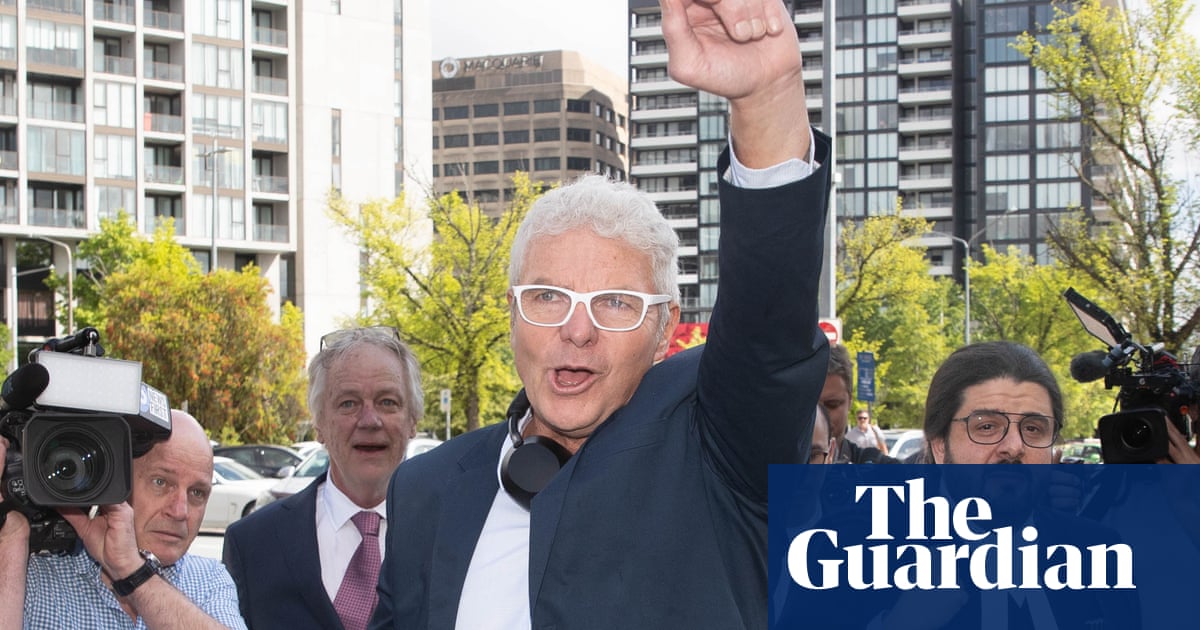
Elysée officials have expressed fury at the decision of Australian prime minister, Scott Morrison, to leak a private text message from the French president, Emmanuel Macron, as the diplomatic rift between the two countries deepened.
“Confidence has been completely shattered,” a close adviser to Macron told French media on Tuesday. “Disclosing a text message exchange between heads of state or government is a pretty crude and unconventional tactic.”
The adviser told Le Parisien that it “would never even enter the head” of the French president to disclose communications of this kind. “It is not the kind of thing that is likely to improve relations between France and Australia,” they said.
In the text, two days before the announcement of the Aukus security partnership and the cancellation of a major French contract to supply submarines to Australia, Macron asked Morrison whether he could expect good or bad news on the submarines.
Its publication came after Macron told reporters he “knew” that Morrison had lied to him over plans with the US and the UK to acquire nuclear-propelled submarines. Morrison rejected the claim and said he was “not going to cop sledging of Australia”.
French media described the text message leak as “spectacular and extremely rare”, saying it appeared to be aimed at demonstrating that Macron had already been informed the contract might not go ahead even before it was torn up.
But the Elysée official insisted the text showed rather that Macron “did not know what stage the discussions had got to” just two days before Australia called off the A$90bn (£49bn) deal for 12 conventionally powered submarines.
A second French government source told Agence-France Presse that if a message existed that clearly showed that Macron did in fact know, “they would have reported that instead”. The source added: “We knew the Australians had some issues, but they only concerned technical aspects and the timetable, as with every big contract.”
It was precisely those issues that the text message referred to, ahead of a discussion with submarine manufacturer Naval Group planned for the following day, the source said. It is not clear what response Morrison gave to the message.
The Elysée also rejected Canberra’s account that it made multiple attempts to contact Paris to warn of the impending announcement. The official told Le Parisien only one phone call had come through to the palace, at 11am on a Wednesday – during Macron’s weekly cabinet meeting.
“It is difficult to believe that the Australian prime minister has not been advised of this constraint,” the official said. “He knew very well the president was unavailable.”
It was later that same day, the adviser said, that Paris had learned that the contract was being rescinded and that a press conference was to be held during the afternoon. “It’s a curious way of going about things,” the Elysée source told Le Parisien.
“France was left with no opportunity to respond or to come up with a counter-proposition, which we had the means to do. Once again, it is not the choice that we denounce – that’s a sovereign decision. It’s the way of doing things.”
The Elysée also said that Morrison could have sought a reconciliatory meeting with Macron in recent days, at the G20 meeting in Rome or the Cop26 climate summit in Glasgow. “The president was waiting for a proposition from the prime minister, which did not come,” the source said.
Morrison spoke with Macron by phone last week, and the French president used that call to urge the Australian government to propose concrete steps to repair the relationship.
Morrison insists that he “made very clear” to Macron at a dinner in Paris in mid-June “that a conventional diesel-powered submarine was not going to meet Australia’s strategic requirements”.
But the Australian prime minister also said he wasn’t at liberty at that stage to disclose to Macron that Australia would work with the US and the UK to acquire nuclear-powered submarines, because those plans had not yet been finalised and were held “in confidence”.












